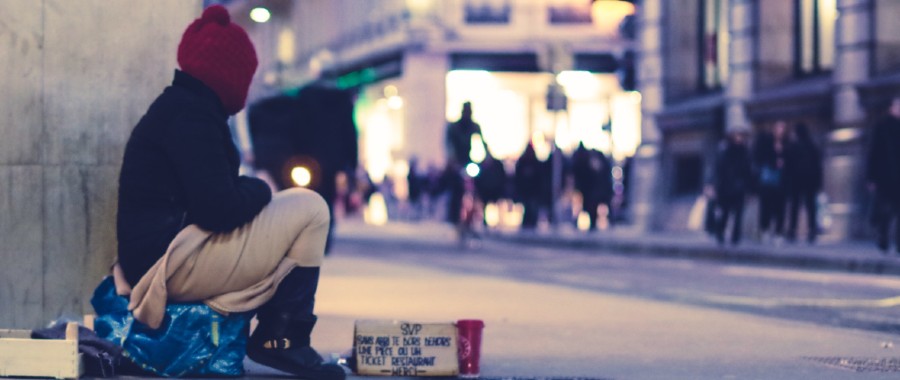Divine justice in the Bahá’í framework is a profound and multifaceted concept that transcends mere human understanding of fairness and equity. It embodies the principle that through divine intercession and an evolving global consciousness, the condition of the impoverished will manifest a transformation, ultimately ensuring that even the least fortunate among us will dwell in comfort. This discourse seeks to unravel the layers of Divine Justice as depicted in Bahá’í teachings, emphasizing the provided assurance that the disenfranchised shall one day attain their rightful dignity and refuge—a comfortable cottage.
At the heart of this exploration lies a common observation: the glaring inequities manifest in society. Economic disparity, alongside social marginalization, pervades human civilization. While material possessions often serve as indicators of success, the Bahá’í teachings posit that true elevation arises from spiritual wealth. This notion challenges conventional views and beckons a reexamination of our understanding of prosperity.
The Bahá’í vision of Divine Justice serves as an antidote to the pervasive cynicism stemming from witnessing systemic injustices. The essence of this doctrine is imbued with hope, positing that divine providence will facilitate the upliftment of the poor—a process that culminates in equitable distribution of resources and opportunities. These tenets advocate that the purpose of existence transcends mere material acquisition; rather, it is a journey toward spiritual development and recognition of our shared humanity.
Divine Justice elucidates several core principles: unity in diversity, the inherent worth of every individual, and the interconnectedness of humanity. These components offer a philosophical foundation from which one may appreciate the socio-economic transformation that is anticipated within the Bahá’í context. To truly grasp Divine Justice, it is imperative to reflect on how these principles operate in conjunction to create an equitable society.
The commitment to unity amidst diversity is central to the Bahá’í understanding of community dynamics. It recognizes that individuals hail from various backgrounds, cultures, and experiences, each contributing to the rich tapestry of human existence. In establishing a society anchored in compassion, the Bahá’í teachings stress the necessity of eliminating prejudice and fostering inclusivity. This expansive worldview invites an egalitarian paradigm, where comfort is not a privilege for the few but rather a universal right.
A pivotal aspect accompanying this philosophical discourse is the acknowledgment of the intrinsic worth of every individual. Bahá’í texts elucidate that every soul holds an inalienable right to dignity, irrespective of socio-economic standing. This principle implores us to reconceptualize our perception of wealth and value; it urges a shift from materialistic metrics to a recognition of spiritual and moral abundance. The poor, in this narrative, are not merely victims of circumstance; they are vital participants in the global community whose potential contributions have been historically overlooked.
The interconnectivity of humanity introduces another layer to this comprehensive understanding of Divine Justice. Socio-economic reform is envisaged not as an isolated endeavor but as a collective responsibility. Each individual has the moral obligation to alleviate the burdens of others, fostering a culture of compassion and interdependence. The Bahá’í system advocates for the establishment of social and economic structures that promote fairness and equity, fundamentally altering the dynamics of resource distribution.
The prophetic utterance that “the poor will have his comfortable cottage” acts as a clarion call, challenging us to envision a world where provisions for all are met with equanimity. A comfortable cottage symbolizes much more than physical shelter; it denotes a sanctuary of hope, stability, and nurturing. This prophetic assurance invites believers and communities alike to engage in meaningful actions that culminate in socio-economic reform. Such actions include advocating for equitable policies, participating in charitable endeavors, and sustaining a dialogue that emphasizes the plight of the impoverished.
However, the journey towards achieving divine justice necessitates rigorous introspection and collective action alongside a steadfast commitment to justice. It implores humanity to reject complacency and embrace an ethos of activism that champions the rights of the underprivileged. By collectively striving towards this ideal, individuals contribute to the unfolding narrative of divine providence.
Moreover, the implications of Divine Justice extend to global governance and policy-making. National and international frameworks must evolve to champion the marginalized, thereby enacting systemic changes that align with Bahá’í principles. This evolution necessitates visionary leadership—individuals who are not only proficient in governance but also endowed with a profound sense of moral responsibility.
In conclusion, the teachings of Bahá’u’lláh beckon us to navigate the complexities of social justice with both fervor and compassion. Acknowledging the inevitability of transformation, one must remain steadfast in the belief that a world characterized by divine justice, where every individual, regardless of socio-economic standing, has access to comfort and dignity, is not merely an ephemeral dream, but a tangible reality that can be actualized through collective commitment and action. Such a world will be one where every poor individual can indeed find his comfortable cottage—a testament to the universal promise of justice, hope, and compassionate action.
